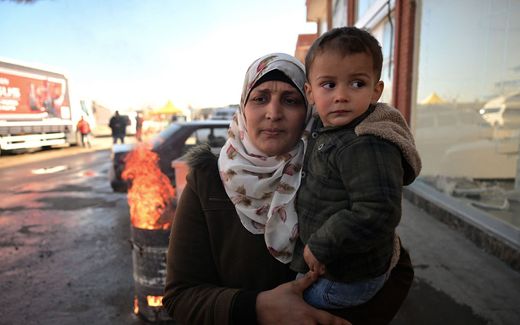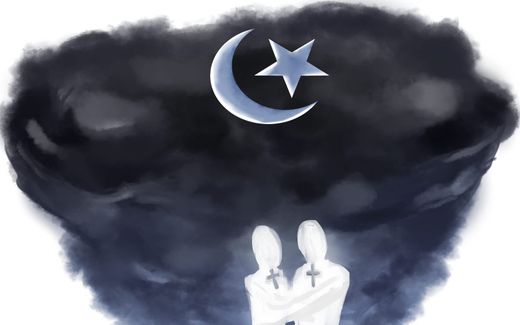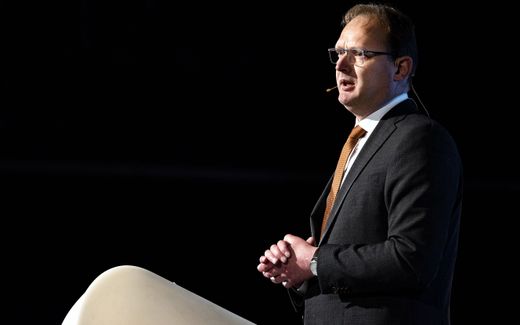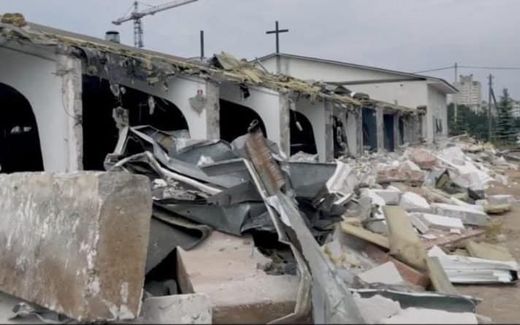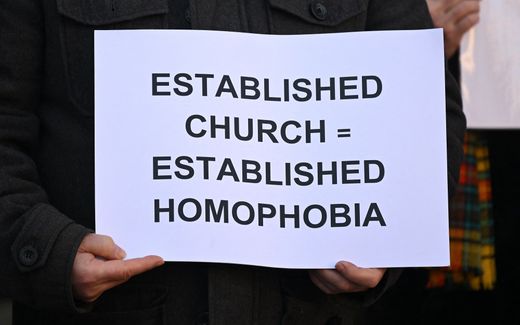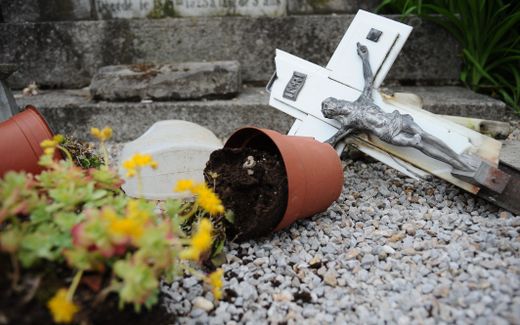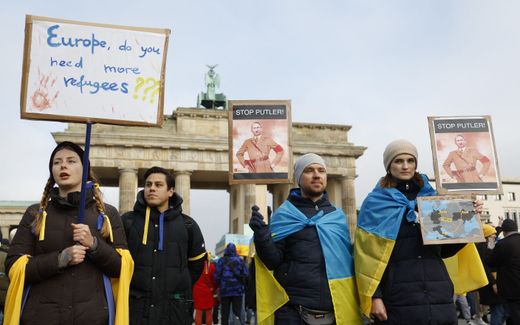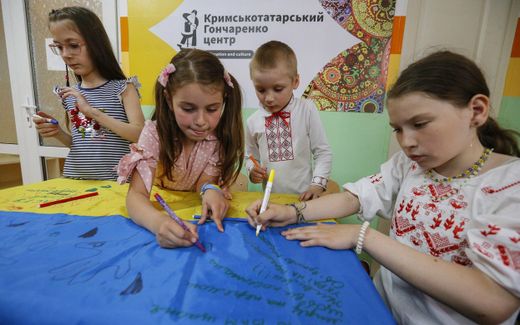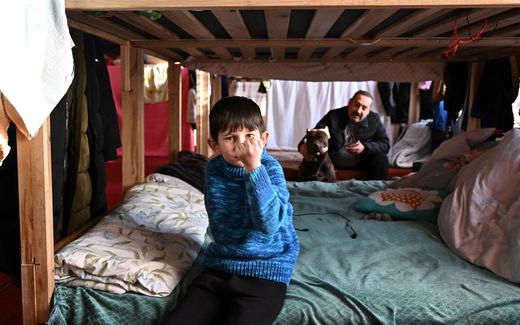Ex-Muslim Sarmad had to flee because of his faith: 'Pray for peace in refugee's heart'
08-08-2023
Western Europe
Michiel Bakker, RD
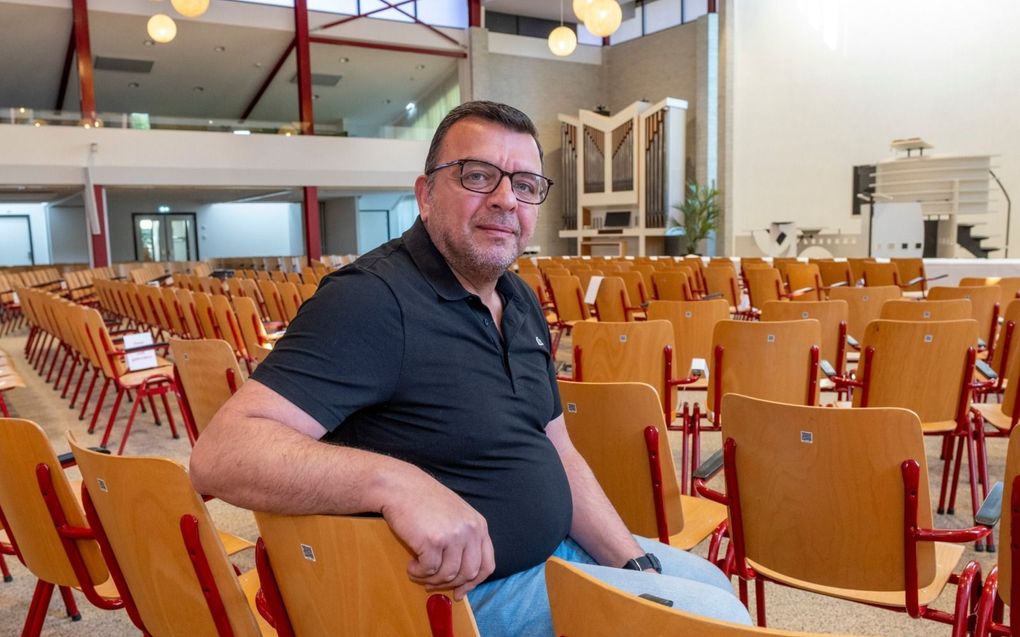
Iraqi refugee Sarmad Al Anbary who fled to the Netherlands because of persecution. Photo Dirk-Jan Gjeltema
Western Europe
Being threatened as a Christian in Iraq, Sarmad Al Anbary (49) fled to the Netherlands. He has now been working here for asylum seekers for many years. In the Dutch town of Goes, he is associated with pioneer spot House of Peace, which wants to share the Gospel with refugees from Iran and Iraq, among others.
At his home in Goes, he says his desire is for refugees to know the peace God gives. He himself missed that inner peace for a long time. The eldest of four children, he grows up in an Islamic family in the Iraqi capital Baghdad. His father is active in a large, Shiite mosque in addition to his work as a gold trader. Sarmad also attends the Islamic house of worship from an early age.
While studying business economics, he befriended a student who turned out to be a Christian. "He was always honest and very nice," he says. Al Anbary tries to persuade his friend to become a Muslim. "I was afraid of Allah from a young age. In 1980-I was a child then-the war between Iran and Iraq began. Death was always near. Children were also dying. I was afraid that Allah would punish me if I died; but if because of me someone converted to Islam, I would go to heaven, I believed."
Knives and swords
When Iraqi leader Saddam Hussein was toppled in 2003, Shiites performed a ritual, beating themselves with knives and swords, Al Anbary says. He takes part in it and ends up in hospital with injuries in late April 2003.
His Christian friend looks for him there. "He asked, "Why are you doing this?" I replied that it brings us closer to Allah. My friend said, "God does not need your blood. He came to this earth and gave His blood Himself." He then went on to tell me more about the Christian faith. I also got a New Testament from him."
Secretly, Al Anbary started reading in it. "I thought: the Bible is an unreliable book and I am going to look up the errors it contains. I started in Matthew. When I got to chapters 5 and 6, the Sermon on the Mount, something happened to me. Those words touched my heart. I had learnt that as a man you should not cry, but then I cried all night."
Dangerous
The next morning, he went to his friend and told him what had happened. "What he said to me then was special: "I have been praying for you for more than four years." On that day, I started following Jesus, even though I did not yet understand what the Trinity is, why God became Man, what sin is and that I need a Saviour. I learnt all that later. It was too dangerous to attend services at the Protestant church, which my friend belonged to, but I joined Bible studies at people's homes."
Over time, those around him found out that Al Anbary had become a Christian, after which he faced "many threats", including from his family. "According to the Quran, my parents had to kill me because I had become a Christian. If one of your children apostates from Islam, it is a disgrace for the whole family."
Via northern Iraq, Al Anbary flees to Europe. In November 2008, he applied for asylum in the Netherlands and ended up in the asylum seekers' centre (azc) in the south of the country. Thinking back on that time, he says: "It was difficult to be in a foreign country, where I did not know the language, the culture and the people. But the hardest part was that I also faced many problems in the azc because I had become a Christian. Muslims argued with me and insisted that I return to Islam."
Residence permit
After a year, the Iraqi receives a residence permit, after which he is assigned a house in the small village of Ovezande. In 2009, at an Arab Christian conference, he meets Azhar, who has a Kurdish background and speaks both Arabic and Farsi. In 2011, they married. The family now lives in Goes and is affiliated with the local reformed congregation.
Al Anbary is moved by the thousands of asylum seekers in the Netherlands. "Many have lost everything. They have fled the war in their country, but lack inner peace, in their hearts. They don't know the love of God and the joy He gives."
Theology
Al Anbary decides to study theology. He gets his bachelor's degree at the university in Stuttgart, Germany, and takes the master's degree online at an Egyptian university in Cairo. Meanwhile, he starts a Bible study at home with three asylum seekers. Gradually, the group grows. He now leads Bible studies in different Dutch towns in the region.
As a pioneer, he is associated with House of Peace, the pioneering place that grew out of the reformed congregation in Goes. He regularly presides at services there in Arabic, with translation into English and Farsi. These services on Sunday afternoons attract 50 to 75 visitors.
Al Anbary appreciates that Christians offer practical help to asylum seekers, and participates in it himself. "It is nice that churches distribute Christmas hampers or give clothes to refugees. They need that. But what they need even more is peace with God."
Real Christian
At House of Peace, contacts with asylum seekers arise through language lessons, among other things. "There is then also space to talk about God and invite people to come to church on Sundays."
Al Anbary regularly witnesses Muslims becoming Christians. It strikes him that they are often touched by the love they experience in Christians.
He also knows stories of asylum seekers who would convert to Christianity because it would increase their chances of getting a residence permit. "God knows people's hearts, I don't. I once spoke to a woman who said she had become a Christian to be able to stay here. "I was a liar," she said. "But because of the love I see here with you, I have now become a real Christian after all."
Miracle
"It is my responsibility to explain the Gospel," continued Al Anbary, who is also a missionary worker. "For the rest, it is God's work." He points to the first and last miracle the Lord Jesus did. "At the wedding in Cana, people had to put water in the vessels and Jesus turned that water into wine. And when Lazarus had died, people had to push away the stone in front of his tomb. Then Jesus raised Lazarus. I can only put water in the vessels and push a little against the stone, but God does the miracle. He brings people to faith."
Al Anbary stresses the importance of prayer. "I regularly visit people in asylum centres. They are often lonely and more than 60 per cent of them have problems due to trauma. Prayer for healing is important. But most important is prayer that refugees' hearts are opened to the Word of God."
Sudan
The number of refugees worldwide is increasing every year. "Last year's increase reflects war in Ukraine and revised estimates for Afghan refugees; further fighting, especially in Sudan, has now brought the global total to 110 million," the UN refugee agency UNHCR reported in June.
The refugees include an estimated 43.3 million children, according to Unicef. The children's rights organisation spoke last month of "a sad milestone in history". The number of children who have had to leave their homes has doubled in the past decade, Unicef said.
This article was translated by CNE.news and published by the Dutch daily Reformatorisch Dagblad on June 16
Related Articles

